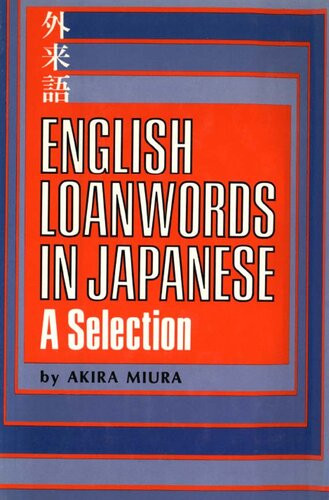

Most ebook files are in PDF format, so you can easily read them using various software such as Foxit Reader or directly on the Google Chrome browser.
Some ebook files are released by publishers in other formats such as .awz, .mobi, .epub, .fb2, etc. You may need to install specific software to read these formats on mobile/PC, such as Calibre.
Please read the tutorial at this link: https://ebookbell.com/faq
We offer FREE conversion to the popular formats you request; however, this may take some time. Therefore, right after payment, please email us, and we will try to provide the service as quickly as possible.
For some exceptional file formats or broken links (if any), please refrain from opening any disputes. Instead, email us first, and we will try to assist within a maximum of 6 hours.
EbookBell Team

5.0
28 reviewsToriningu-pantsu are not training pants for babies who have not yet been toilet-trained. Toreningu-pantsu are sweat pants. When you jump into a swimming pool you will get wet, but not necessarily uetto. Volleyball, which was invented in the United States, is known as bareboru in Japan, but the tennis volley was the English gentleman's pride before it was America's . A tennis volley is therefore pronounced in British style, bore, not as American bare. Oru means "all" but has a more limited usage. Bosu is often used more negatively than English boss.
Many people imagine that speakers of English who study the Japanese language find their way eased by the profusion of "English words" the Japanese have borrowed. Students of the language, however, often complain that borrowed words are more problematic than the older terms in the Japanese word pool.
One of the biggest problems is the lack of adequate reference materials on the terms. Many of the existing works do little more than define the terms. This book handles the problematic areas. Here a reader will find sample sentences, tips on usage, and warnings against easy-to-commit mistakes. There are fascinating studies of how certain "English" terms were coined in Japan and of what led the Japanese to redefine certain common English words. Miura examines how certain words entered Japanese, and why they became popular.
He theorizes on why an unexpected pronunciation developed. In discussing the borrowed terms, the author draws on many linguistic scholars, discusses prevailing beliefs on etymology and pronunciation, and uses his own considerable experience with both English and Japanese to help the student gain control of some of the most problematic words borrowed by J apanese from English . Each of the 850 words discussed under the text's more than 350 main headings is included in a n index for quick reference.
The detail and currency of the explanations contained in this book are unmatched by other books on the subject. For the student hard put to use these borrowed words, this text offers real help.